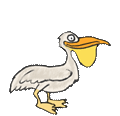Information For Action www.informaction.org
| W | A | T | E | R | S | U | P | P | L | Y |
| A | N | D | P | O | L | L | U | T | I | O | N |
Why is water important to us?
We need water to survive and to do things like:
Grow food.
Create power.
Run our industries.
Stay healthy.
What does the term water supply mean?
It means the total amount of water available for humans and other living things, such as animals, to use.
What is the world's water supply like at the moment?
Only about 1 percent of the water on earth is available for humans to use. The rest is locked in ice caps and glaciers or is too salty to drink.
If there is so little water available, are humans trying to use less of it?
Not at all. In fact, the opposite to this is happening.
The world population is growing and growing, which means that human demand for water has never been higher.
Pollution and the poor management of water in places like farms and factories has meant that there is less water available to us.
Environmental problems like salinity and soil erosion have reduced the quality of potential water supplies.
Most governments around the world have not created good policies for managing and preserving our water supplies.
What can you do to help?
Wherever you go - whether you are at home, school, or the garden - be very aware of how much water you are using.
Ask your parents to consider buying an automatic dishwasher, if they don't have one.
Ask your parents if they would consider using waste water from the bath or laundry in the garden.
Remember...
Water is the most important resource we have. Let's start to treat it that way!
What is water pollution?
It is when pollutants enter waterways such as oceans or rivers.
Where do water pollutants mainly come from?
Waste from sewers.
Waste from domestic farm animals.
Fertilisers from farms being transported to waterways by rain.
Waste from factories.
Illegal dumping of sewage, which is often treated with chemicals, into the ocean.
How does this hurt humans and the environment?
The water in many countries is not safe for people to swim in or use for fishing.
One-fifth of the people in the world are forced to drink unsafe water, most of which causes diseases like malaria.
When fertilisers pollute rivers, they can lead to the growth of algae in rivers when the weather is hot. Algae can cause eye and skin irritation, and liver damage if it is swallowed by humans.
Three million people, mostly children, die each year from diseases caused by drinking polluted water.
When combined with fertiliser run-off from places like farms, sewage causes the growth of algae. These algal blooms suffocate and kill fish and other marine organisms.
Chemicals that pollute waterways harm wildlife and cause genetic changes in marine life. Some chemicals can also make it difficult for particular animals to have babies.
What can you do to help?
Ask your parents to consider getting a wastewater treatment system in your home, if they are not happy with how the local government is dealing with waste.
If your parents or any adults you know own a boat, ask them to make sure it is fitted with an environmentally friendly toilet facility or treatment system.
Remember?/p>
We all need water to survive, so let's keep our waterways clean!






